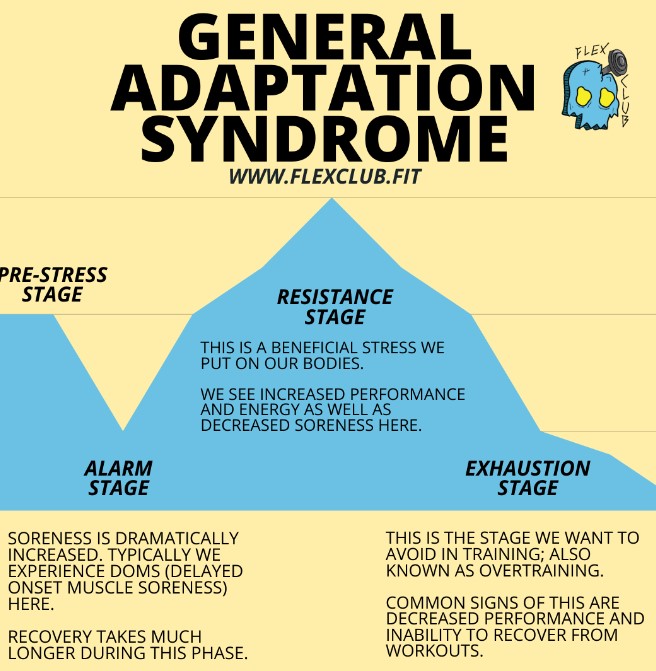BOURSESSENEGAL – When we encounter stress, our bodies go through a process known as general adaptation syndrome (GAS). This physiological response, identified by Hans Selye in the 1930s, describes how our bodies react to stressors over time. Understanding general adaptation syndrome is crucial for managing stress effectively and maintaining overall health. In this comprehensive guide, we will explore the stages of GAS, its impact on our health, and strategies to mitigate its effects.
What is General Adaptation Syndrome?
General adaptation syndrome refers to the body’s three-stage response to stress: alarm, resistance, and exhaustion. Each stage plays a vital role in how we handle stress and adapt to challenges. By recognizing these stages, you can better understand your stress responses and how to manage them effectively.
The Three Stages of General Adaptation Syndrome
1. Alarm Stage
The alarm stage represents the initial reaction to a stressor. This is when your body perceives a threat, triggering the “fight or flight” response. You might notice physical changes during this phase, such as:
- Increased heart rate
- Heightened senses
- Release of stress hormones like adrenaline and cortisol
This stage prepares your body to face the challenge ahead. However, prolonged exposure to stress can lead to complications if the body remains in this state for too long.
2. Resistance Stage
During the resistance stage, your body attempts to adapt to the ongoing stressor. While your body may have stabilized after the initial shock, it’s still working hard to cope. You might experience:
- Increased focus and alertness
- A sense of productivity
- Emotional responses like irritability or frustration
Your body remains on high alert, continually producing stress hormones. If the stressor persists, your body will continue to engage in coping mechanisms. However, this can lead to wear and tear on your physical and mental health.
3. Exhaustion Stage
The exhaustion stage occurs when your body’s resources become depleted. After prolonged exposure to stress without adequate recovery, you may experience:
- Physical symptoms like fatigue and weakened immune function
- Mental exhaustion, leading to decreased performance and motivation
- Emotional breakdowns or increased anxiety
At this point, your body can no longer cope effectively, leading to burnout or stress-related illnesses. Recognizing the signs of exhaustion is crucial for preventing further health complications.
The Impact of General Adaptation Syndrome on Health
Understanding general adaptation syndrome helps us recognize its potential effects on our overall health. Chronic stress can lead to various health problems, including:
1. Mental Health Issues
Prolonged stress can contribute to anxiety, depression, and other mental health disorders. The continuous activation of the stress response can impact neurotransmitters, affecting mood and emotional stability.
2. Physical Health Problems
The body’s response to stress can lead to physical ailments such as:
- Cardiovascular disease: Chronic stress increases heart rate and blood pressure, putting strain on the heart.
- Gastrointestinal issues: Stress can cause or worsen conditions like irritable bowel syndrome (IBS) and ulcers.
- Weakened immune response: Prolonged stress may impair the immune system, making you more susceptible to infections.
3. Behavioral Changes
Stress can lead to unhealthy coping mechanisms, such as overeating, smoking, or substance abuse. These behaviors can further exacerbate health issues and create a vicious cycle.
Strategies to Manage General Adaptation Syndrome
Recognizing the stages of general adaptation syndrome allows you to take proactive steps in managing stress. Here are some effective strategies:
1. Practice Mindfulness and Relaxation Techniques
Mindfulness practices, such as meditation, deep breathing, and yoga, can help reduce stress levels. These techniques promote relaxation and allow your body to shift from the alarm stage to a calmer state.
2. Prioritize Self-Care
Make time for self-care activities that recharge your mind and body. Engage in hobbies, exercise regularly, and ensure you get adequate sleep. Self-care is essential for maintaining resilience against stress.
3. Build a Support Network
Surrounding yourself with supportive friends and family can make a significant difference in managing stress. Sharing your feelings and experiences can alleviate the burden and provide comfort during challenging times.
4. Set Realistic Goals
Break down tasks into manageable steps to prevent feeling overwhelmed. Setting achievable goals allows you to focus on small accomplishments, reducing feelings of stress and increasing motivation.
5. Seek Professional Help
If you find that stress is becoming unmanageable, don’t hesitate to seek help from a mental health professional. Therapy can provide valuable tools and coping strategies to navigate challenging situations.
Recognizing Signs of General Adaptation Syndrome
Being aware of the signs and symptoms of general adaptation syndrome can help you intervene early. Look out for:
- Increased irritability or mood swings
- Physical symptoms like headaches or digestive issues
- A feeling of constant fatigue or lack of motivation
- Changes in appetite or sleep patterns
By recognizing these signs, you can take steps to address stress before it leads to exhaustion.
Conclusion
General adaptation syndrome provides valuable insight into how our bodies respond to stress. By understanding the stages of GAS, you can better manage stress and protect your health. Implementing strategies such as mindfulness, self-care, and seeking support can significantly improve your ability to cope with stressors. Remember, managing stress is not just about avoiding it—it’s about building resilience and finding balance in your life. Prioritize your well-being, and you’ll navigate the challenges ahead with greater ease.
REFERENCE : https://www.health.com/



